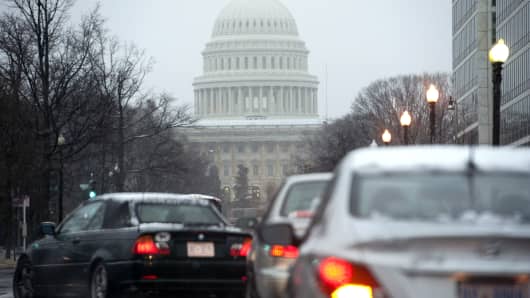Congress faces a Dec. 8 deadline to keep the government funded and avert a shutdown. The latest shutdown threat stems from a September move by Congress to pass a short-term continuing resolution to keep the government going.
Ahead of a scheduled meeting with Senate Minority Leader Chuck Schumer, D-N.Y., and House Minority Leader Nancy Pelosi, D-Calif., Trump tweeted that "I don't see a deal" to avoid closing the government. He claimed that "they want illegal immigrants flooding into our Country unchecked, are weak on Crime and want to substantially RAISE Taxes."
The Democratic leaders later pulled out of the planned Tuesday afternoon meeting, saying they would prefer to negotiate only with Senate Majority Leader Mitch McConnell and House Speaker Paul Ryan.
Democrats and some moderate Republicans want to enact protections for hundreds of thousands of young immigrants who came to the U.S. illegally as children before the end of the year. Trump ended the Deferred Action for Childhood Arrivals program in September, with a six-month delay to push for congressional action.
One possibility is approving a stopgap funding measure for only a number of weeks before Dec. 8, then passing a longer-term funding bill before the end of the year.
Lawmakers seem to want to avoid a shutdown. If Congress once again shoots itself in the fiscal foot, the resulting gridlock would be inconvenient and costly for taxpayers. Even if a shutdown lasts only a few days, the pain would be widespread.




